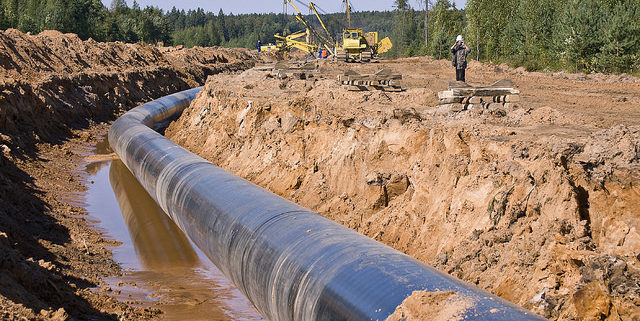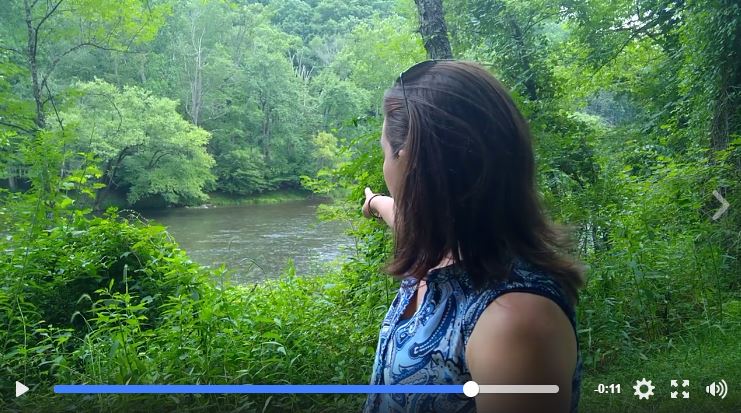Scrutinizing and watchdogging the natural gas pipeline permitting process is an essential program of West Virginia Rivers Coalition. This intensive work has become even more crucial as three major natural gas pipelines spanning nearly 500 miles throughout the state are poised to impact 2,246 stream segments and approximately 860 wetlands. That’s over 3,100 impacts to West Virginia’s water resources.
We know just how dangerous a short 60-mile pipeline can be to our streams. The Rover Pipeline, in it’s short path, garnered 24 water quality violations resulting in a cease and desist by the WVDEP. If just 60-miles of pipeline can result in two dozen water quality violations, imagine the impact of 500 pipeline miles. The photo to the left depicts sediment from the Rover Pipeline flowing into Meathouse Fork in Doddridge County.
Please donate to WV Rivers today and help us stand up for streams in the path of pipelines.
WV Rivers is taking on pipelines and making a difference. Our comments and legal intervention resulted in the WVDEP withdrawing an important water quality permit for the Mountain Valley Pipeline. Read about our victory here.
We need your support to keep up the fight. Over the past 18 months, we dedicated 2,028 hours of specialized scientific permit analysis and community education, costing $55,000, in response to pipelines. That’s about $25 dollars for each stream segment in the cross-hairs of proposed pipelines. Can you donate just $25 dollars to give our streams a fighting chance? If you don’t, who will?
Here’s how WV Rivers is putting your donations to work mobilizing resources around pipelines:
On the Ground Intervention
We’re meeting with affected landowners and groundtruthing pipeline claims. This summer, while investigating the proposed route of the Atlantic Coast Pipeline, we identified an undocumented brook trout stream in Pocahontas County. Clover Creek is proposed to be crossed by the ACP, but now it can officially be listed as a trout stream and be considered for additional protections.
Watchdogging Regulators
Before pipeline construction can begin, companies must receive both federal and state level permits. WV Rivers is there scrutinizing the process at every step. When we see threats to water quality we intervene, like we did on the Mountain Valley Pipeline. Our expertise and scientific analysis is respected, when we speak up, regulators listen.
Empowering Citizens and Communities
WV Rivers is working to give communities and citizens throughout West Virginia the tools they need to advocate for local water resources in the path of pipelines. We’re holding community meetings, facilitating citizen commenting on pipeline permits, and publishing resources like fact sheets and our Citizen’s Guide to Fracking Permits in West Virginia to empower West Virginian’s to take on pipelines.
Confronting massive natural gas pipelines takes time and money. It’s intensive work that depends on your financial support. Please make a tax-deductible donation today. Together, we can take on pipelines and defend our water resources!







